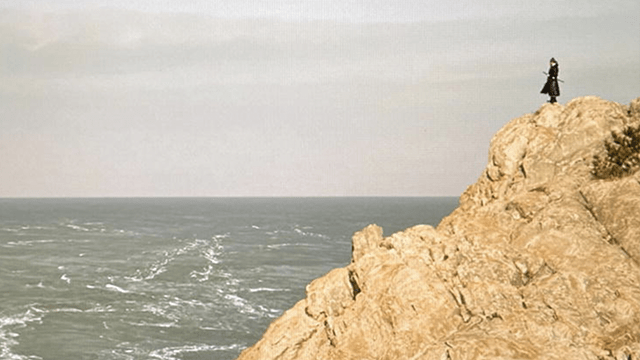
Image taken from Kyung Moon Hwang, Fate and Freedom in Korean Historical Films (Creative Commons license).
In reflecting well-received historical understanding and perception, as well as in contributing to an evolving popular discourse about the nation’s past, Korean historical films released over the past quarter-century—the so-called “Korean Wave” period—have done a masterful job of using the country’s geography as metaphors and symbols of cultural identity and specific historical circumstances. Of particular note is the display of islands and seascapes, as well as of mountains and rivers, to symbolise historical themes and messaging for a certain experience, such as that of foreign invasion, war, or the awakening of cultural identity. The juxtaposition of individuals or groups against these backdrops point toward specific moments of the past but also the enduring unity of nationhood and its core interests.
Kyung Moon Hwang is Korea Foundation Professor in the School of Culture, History, & Language at the ANU and currently serves as Director of the ANU Korea Institute. He is the author of Fate and Freedom in Korean Historical Films (2023), A History of Korea (Third Edition, 2021), Past Forward: Essays in Korean History (2019), Rationalizing Korea: The Rise of the Modern State (2015), and Beyond Birth: Social Status in the Emergence of Modern Korea (2004). At the ANU he teaches courses on Korean history, politics & society, culture, and language. Recently, he has also appeared as an interviewee in media outlets to provide analysis on the South Korean political crisis.
Location
Speakers
- Professor Kyung Moon Hwang
Event Series
Contact
- David Romney Smith